Resources edited by John Stephen Veitch.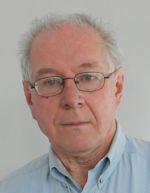
In this part of the site, I want to offer nothing of my own, except that I've gathered this material for you to study. Your health, be it good or bad, is driven by the quality of the knowledge you have. You cannot and will not accept what anyone says, to change what you already know, without a fight. I'd rather not have you engage in fighting with me. Hence my intention here is offer you access to some other people who have taught me a lot. Take your time and read long and deep. Gradually the defensive wall that stops you learning anything different will begin to crumble, as you realise that some of the things you were taught, and believe, don't make sense any longer. Now your deschooling can begin. As you continue to search for better health information, slowly what you are reading will begin to make sense to you.
This is a long essay, five pages, with many links. Take your time.
Preparation Today for the Rest of Your Life
If you are concerned about your own ageing process, or concerned about your ageing parent, listen to George Vaillant. If you live your life in a sensible way, if you make an effort to be healthy in the middle of your life, there is every possibility that you will live to a ripe old age. No guarantee of course, but the number of people who lose their life early from an accident, or disease is actually quite small. Large numbers of people, most of those who die between 55 and 80, die because of earlier poor lifestyle choices. They die of problems they've been self-creating for 20 years.
Late in your life you need not be feeble and unhappy. If you are healthy, life for people in their 90's can be a great joy.
Your Genes and the Environment
This section is about the things you can't change, or only have a little control over. Your genes may or may not be the best gene set for the place you live or for the profession you chose. While it is possible to map your own gene set, and the cost has become affordable, most of the sequences in your gene map don't code for anything that science can yet identify. It might just be junk, and it might not be. We do know that you can carry a gene, or a set of genes, that are potentially harmful (or useful); yet because of your diet, environment or lifestyle that potential may never be turned on/off. So genes map genetic possibility, not necessarily your fate. Your diet can affect not only how your own genes react, but also influence the genetic make-up of your children. Diet, smoking and stress may cause epigenetic changes to our genes. How many such changes can be passed on to other generations and for how long these changes persist remains unclear.
If you are exposed to harmful toxins or chemicals, in your environment, it can affect the way the genes in your body work. That can potentially cause mutations in your genes that could lead to future disease. However, for his to occur, you generally need a long term exposure to the harmful substance and this varies depending on the environmental toxin/chemical. Two examples: the female hormone estrogen is now found in waterways everywhere, probably because of the wide use of the oral contraceptive pill. This seems to be causing a decline in male sperm counts not only in humans and it's also causing deformity in fish. The over-use of antibiotics is now causing the contamination of drinking water supplies in many areas. This has the potential to cause an outbreak of antibiotic resistant infections.
Social Engagement and Family
In his book "The triumphs of Experience", George Vaillant tell us that the ability of your mother to love you or not, has a profound effect on your life. However, even if that was not the case, if you can develop the ability to love, and if you will allow yourself to be loved. Family life is very important. Spend time with family members, cherish and nurture them because a great treasure can be created. Try to find a marriage partner, and work to make the marriage a success. In that regard, the misuse of alcohol is the biggest destroyer, but the misuse of money, or betraying trust is also destructive.
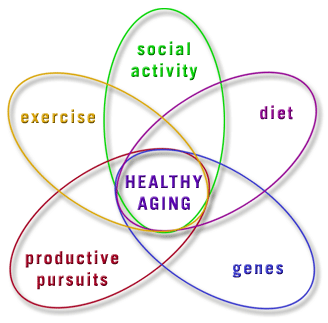 The Image on the left does present a sensible way to think about your health. In the topics below I'll modify the headings just a little bit.
The Image on the left does present a sensible way to think about your health. In the topics below I'll modify the headings just a little bit.
“When you love someone, you love the person as they are, and not as you'd like them to be.”?
Leo Tolstoy
“Love is life. All, everything that I understand, I understand only because I love. Everything is, everything exists, only because I love. Everything is united by it alone. Love is God, and to die means that I, a particle of love, shall return to the general and eternal source.”?
Leo Tolstoy
This is a paper published by the National Institute of Health (USA) ![]() Social Relationships and Health: A Flashpoint for Health Policy. "Studies show that social relationships have short- and long-term effects on health, for better and for worse, and that these effects emerge in childhood and cascade throughout life to foster cumulative advantage or disadvantage in health.
Social Relationships and Health: A Flashpoint for Health Policy. "Studies show that social relationships have short- and long-term effects on health, for better and for worse, and that these effects emerge in childhood and cascade throughout life to foster cumulative advantage or disadvantage in health.
Work and Purpose
The key to have a productive and worthwhile life is to find a way to combine something you have a passion for, with how you spend a good part of most days. You need to commit to something bigger than you are. Bringing up your children, planting trees, building a business, improving a club or community. If you are lucky you can earn your living doing this, but most of us earn a living doing what we must, and devote as many leisure hours as possible to the things we feel passionate about.
I think our society has this one back to front. We've been told that goal setting is supremely important, that goal setting is the horse that pulls carts called success, happiness and good health. I suspect that in fact good health is the horse that makes it possible to set goals and to work hard towards difficult but worthwhile objectives.
The best piece of advice on this topic come from the excellent blog Brain Pickings, under the title: ![]() How to Let Your Life Speak, Discern Your Purpose, and Define Your Own Success.
How to Let Your Life Speak, Discern Your Purpose, and Define Your Own Success.
In her blog The Tiny Buddha, Esther Litchfield-Fink wrote this short essay which makes some useful points. ![]() 3 Steps to Find Your Purpose When Life is Crashing Into Chaos.
3 Steps to Find Your Purpose When Life is Crashing Into Chaos.
Nutrition
We all act as if there is some expert who knows what the perfect BALANCED human diet is, which if followed would lead to optimal human health. Such expertise doesn't exist. Nor does that perfect diet.
For me the biggest change in my thinking has been about my personal diet. From lots of carbohydrates, and often the more the better, thirty years ago, through learning to eat less bread and potatoes, to my current diet of zero grains, and only carbohydrates from vegetables and a little fruit. The reason for changing was always in seeking the most healthy diet.
My wife frequently cooks vegetarian meals. For her for many years that was an ideal she aimed for, though we have always eaten at least one substantial meat meal a week, often chicken, but not always. Twenty years ago we lived by the low fat, and minimal red meat rule, but we were getting fatter. We have many friends who are vegetarians, one whom has a heart problem. It never occurred to us that his diet might be the cause of a cardiovascular problem. With the new knowledge I've gained recently, I now wonder. Perhaps the lack of fatty acids or some nutriment that can only be gained from eating meat, is the cause of problems in that suspect heart. I don't know.
![]() Gary Taubes - Why We Get Fat: The Diet/Weight Relationship, An Alternative Hypothesis It's not about calories and it's not about overeating. (1 hour)
Gary Taubes - Why We Get Fat: The Diet/Weight Relationship, An Alternative Hypothesis It's not about calories and it's not about overeating. (1 hour)
Obesity is the result of hormone disorder, particularly involving insulin, and driven by the excessive intake of carbohydrates. Don't count calories, that doesn't help. Your genes do affect how you metabolize food, but it's a hormone disorder involving insulin, CAUSED be eating too much carbohydrate that makes people fat.
Peter Attia had a partnership with Gary Taubes, in the Nutrition Science Initiative, presenting new nutrition information to the public. That came to an end in 2021 as described here; ![]() "The Dissolution of the Nutrition Science Initiative."
"The Dissolution of the Nutrition Science Initiative."
If you want to study the science the Nutrition & Metabolism Society, is the leading organisation promoting the use of scientific methods in the choice of a diet for human subjects.
Low Carbohydrate Nutrition
![]() Prof. Tim Noakes - 'Medical aspects of the low carbohydrate lifestyle' (Sep 2014) (45 min)
Prof. Tim Noakes - 'Medical aspects of the low carbohydrate lifestyle' (Sep 2014) (45 min)
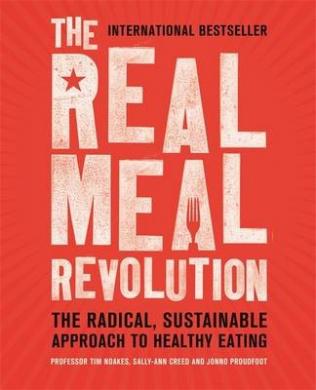 Professor Timothy Noakes introduced me to the concept of low-carbohydrate diets in 2012. It seemed too fantastic, so I didn't rush in and try it. Prof. Noakes is a South African professor of exercise and sports science at the University of Cape Town. He has run more than 70 marathons and ultramarathons and is the author of several books on exercise and diet. He is known for his support of a high-fat, low-carbohydrate diet, as set out in his book
Professor Timothy Noakes introduced me to the concept of low-carbohydrate diets in 2012. It seemed too fantastic, so I didn't rush in and try it. Prof. Noakes is a South African professor of exercise and sports science at the University of Cape Town. He has run more than 70 marathons and ultramarathons and is the author of several books on exercise and diet. He is known for his support of a high-fat, low-carbohydrate diet, as set out in his book ![]() "The Real Meal Revolution." This best selling book has just been published beyond South Africa.
"The Real Meal Revolution." This best selling book has just been published beyond South Africa. ![]() There is an excellent supporting web site here.
There is an excellent supporting web site here.
Here is a review I wrote for Fishpond: "This really is an excellent book about how to get your weight under control and how to live more healthy life. Prof. Tim Noakes writes an very informative essay about the science that supports low carbohydrate and high fat diets if you want to lose weight. He also makes it clear that high cholesterol does NOT cause heart disease. In fact higher cholesterol is associated with better brain function and longer life.
The bulk of the book contains recipes by Jonno Proudfoot, that are a delight because he teaches us how to successfully use fat in our diets and how to avoid carbohydrate."
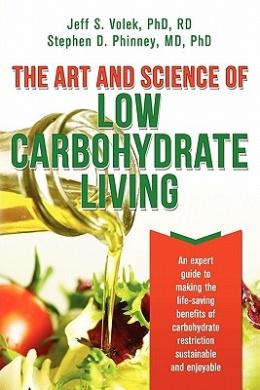 For high quality science, this rather technical book is the best I know. The Art and Science of Low Carbohydrate Living: An Expert Guide to Making the Life-Saving Benefits of Carbohydrate Restriction Sustainable and Enjoyable. Written by Prof. Stephen Phinney and Dr. Jeff Volek (2011). Dr Volek is probably the world leading researcher on the use of low carbohydrate diets.
For high quality science, this rather technical book is the best I know. The Art and Science of Low Carbohydrate Living: An Expert Guide to Making the Life-Saving Benefits of Carbohydrate Restriction Sustainable and Enjoyable. Written by Prof. Stephen Phinney and Dr. Jeff Volek (2011). Dr Volek is probably the world leading researcher on the use of low carbohydrate diets.
If you are interested in sports performance try this version;
![]() The Art and Science of Low Carbohydrate Performance.
Written by Prof. Stephen Phinney and Dr. Jeff Volek (2012).
The Art and Science of Low Carbohydrate Performance.
Written by Prof. Stephen Phinney and Dr. Jeff Volek (2012).
![]() Dr. Stephen Phinney - 'The Art and Science of Low Carb Living and Performance' (Sep 2014) (45 min)
Dr. Stephen Phinney - 'The Art and Science of Low Carb Living and Performance' (Sep 2014) (45 min)
Steve Phinney is a physician-scientist who has spent 35 years studying diet, exercise, fatty acids, and inflammation. He has held academic positions at the Universities of Vermont, Minnesota, and California at Davis, as well as leadership positions at Monsanto, Galileo Laboratories, and Efficas.
Dr. Phinney has published over 70 papers and holds several patents. He received his MD from Stanford University, his PhD in Nutritional Biochemistry from MIT, and post-doctoral training at the University of Vermont and Harvard. His work has been neglected, but Dr Jeff Volek, conducted many experiments based on the work of Dr Phinney, and they now work closely together.
![]() Dr. Jeff Volek, on the physiological effects of very low carbohydrate diets. (Dec 2013)
Dr. Jeff Volek, on the physiological effects of very low carbohydrate diets. (Dec 2013)
Obesity is a condition of excess fat accumulation in the adipose tissues where the person is literally stuck in storage mode. The most efficient approach to accelerate the body's ability to access and burn body fat is to restrict dietary carbohydrate while increasing fat intake for a period of several weeks, after which fatty acids and ketones become the primary fuel at rest and during submaximal exercise. The coordinated set of metabolic adaptations that ensure proper inter-organ fuel supply in the face of low carbohydrate availability is referred to as keto-adaptation. This presentation (above) will discuss the physiological effects of very low carbohydrate diets with an emphasis on their unique effects on both features of metabolic syndrome and human performance.
Dr. Jeff Volek is a Full Professor in the Department of Kinesiology at the University of Connecticut where he teaches and leads a research team that explores the physiological impact of various dietary and exercise regimens and nutritional supplements. Through more than a decade of research dedicated to better understanding low carbohydrate diets, Dr. Volek has accumulated an enormous amount of laboratory and clinical data on how carbohydrate restricted diets affect human physiology, and acquired a unique knowledge pertaining to the individualization and formulation of safe, effective and sustainable low carbohydrate diets.
![]() Dr. Stephen Phinney - 'Achieving and Maintaining Nutritional Ketosis' (Sep 2014) 20 min
Dr. Stephen Phinney - 'Achieving and Maintaining Nutritional Ketosis' (Sep 2014) 20 min
This video is for the really dedicated. Help for those who intend to use a ketogenic diet.
If you want an interesting historical read that puts the nutrition debate in perspective, ![]() Death by Food Pyramid: How Shoddy Science, Sketchy Politics and Shady Special Interests Have Ruined Our Health, (2014) by Denise Minger is a good choice. Denise Minger, is a journalist, but she has good research skills. Here are two well written reviews
Death by Food Pyramid: How Shoddy Science, Sketchy Politics and Shady Special Interests Have Ruined Our Health, (2014) by Denise Minger is a good choice. Denise Minger, is a journalist, but she has good research skills. Here are two well written reviews ![]() Michael R Eades, MD., or the
Michael R Eades, MD., or the ![]() Weston Price Foundation.
Weston Price Foundation.
There's a wealth of very good resources online too many for me to evaluate. I've created a page of links here. I've tried to group them in a sensible way.
Did Your Mother Love You?
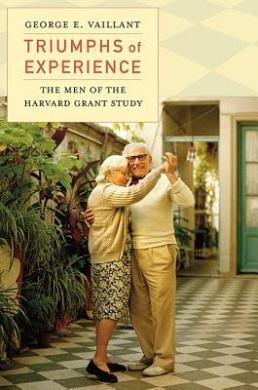 In his book "
In his book "![]() The triumphs of Experience", George Vaillant suggests that if we look after our health, unless fate deals us an unusual hand, we should all live beyond 85. If you get to 105 or not after that really depends on things like your genes. During the 70 years of the Grant Study, Vaillant says he saw people adopt more than three dietary styles. There was no long run benefit, and in the end the data shows it made no difference. The same is true of high stress in mid-life, and being athletic in mid-life and in having high or low cholesterol at age 50. None of these things made any difference to how long people lived, or to how successful their lives were. The best predictor of how long you will live and how successful you will be, is simple according to Vaillant. Did you mother love you? Something else you can't change now.
The triumphs of Experience", George Vaillant suggests that if we look after our health, unless fate deals us an unusual hand, we should all live beyond 85. If you get to 105 or not after that really depends on things like your genes. During the 70 years of the Grant Study, Vaillant says he saw people adopt more than three dietary styles. There was no long run benefit, and in the end the data shows it made no difference. The same is true of high stress in mid-life, and being athletic in mid-life and in having high or low cholesterol at age 50. None of these things made any difference to how long people lived, or to how successful their lives were. The best predictor of how long you will live and how successful you will be, is simple according to Vaillant. Did you mother love you? Something else you can't change now.
Both Anxiety and Depression could have genetic, or family "cultural behaviours" (Childhood abuse), or other environmental roots. Too big a topic for me to consider here. Two NZ web sites try to be helpful. ![]() For Depression the John Kirwin site is recommended.
For Depression the John Kirwin site is recommended.![]() For anxiety you can try this NZ site.
For anxiety you can try this NZ site.
Exercise and effort
In "The triumphs of Experience", George Vaillant tells us that the evidence that people who exercise are more healthy is weak. On the other hand, the evidence that people who are healthy love to exercise and play games and strive to do their best. He describes physical and mental health as the "horse" that makes exercise and striving and effort possible.
Metabolic syndrome (MetS) is a medical term for a constellation of health symptoms or markers related to insulin resistance in the body. It's thought that more than half the population in developed countries have Metabolic Syndrome to some degree, and almost everyone is on a progressive path in that direction. "Although there is no universally accepted definition or mechanism, a rough common denominator is the set of five features: obesity (high body weight, BMI and/or waist circumference), high glucose and insulin levels, low HDL, high TAG and high blood pressure. Insulin resistance is generally a common feature, and a likely causative agent for at least some of the symptoms."
If you have diabetes you should read this scientific paper, ![]() Dietary carbohydrate restriction as the
first approach in diabetes management: Critical review and evidence base; then take a copy to your doctor, if you are not already carbohydrate restricting.
Dietary carbohydrate restriction as the
first approach in diabetes management: Critical review and evidence base; then take a copy to your doctor, if you are not already carbohydrate restricting.
The Center for Disease Control and Prevention (USA) also makes recommendations about ![]() exercise for everyone.
exercise for everyone.
The American Heart Association publishes heart news, ![]() and search for "Exercise". This article is useful,
and search for "Exercise". This article is useful, ![]() A New Standard for Exercise: It is Time to Move it to Make it a High-Level Priority
A New Standard for Exercise: It is Time to Move it to Make it a High-Level Priority
Carolyn and myself recommend dancing and walking. Both activities are best done in a group setting; join a club. Carolyn is very involved in ![]() T'ai Chi Ch'uan, or Qigong. The people involved in all these activities are the sort of people who will help you build your life and your friendships.
T'ai Chi Ch'uan, or Qigong. The people involved in all these activities are the sort of people who will help you build your life and your friendships.
